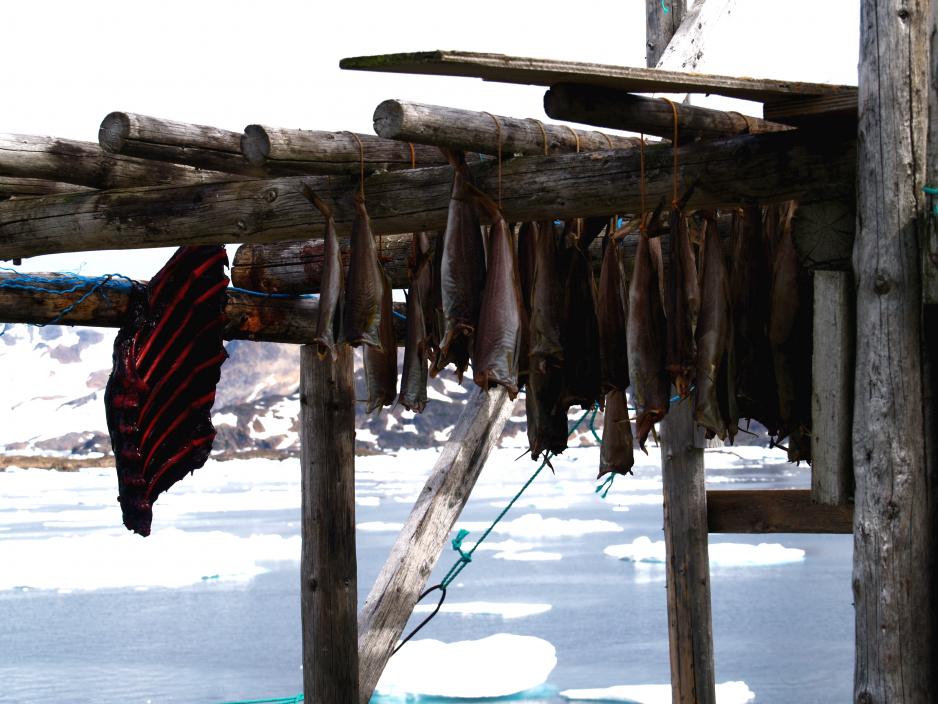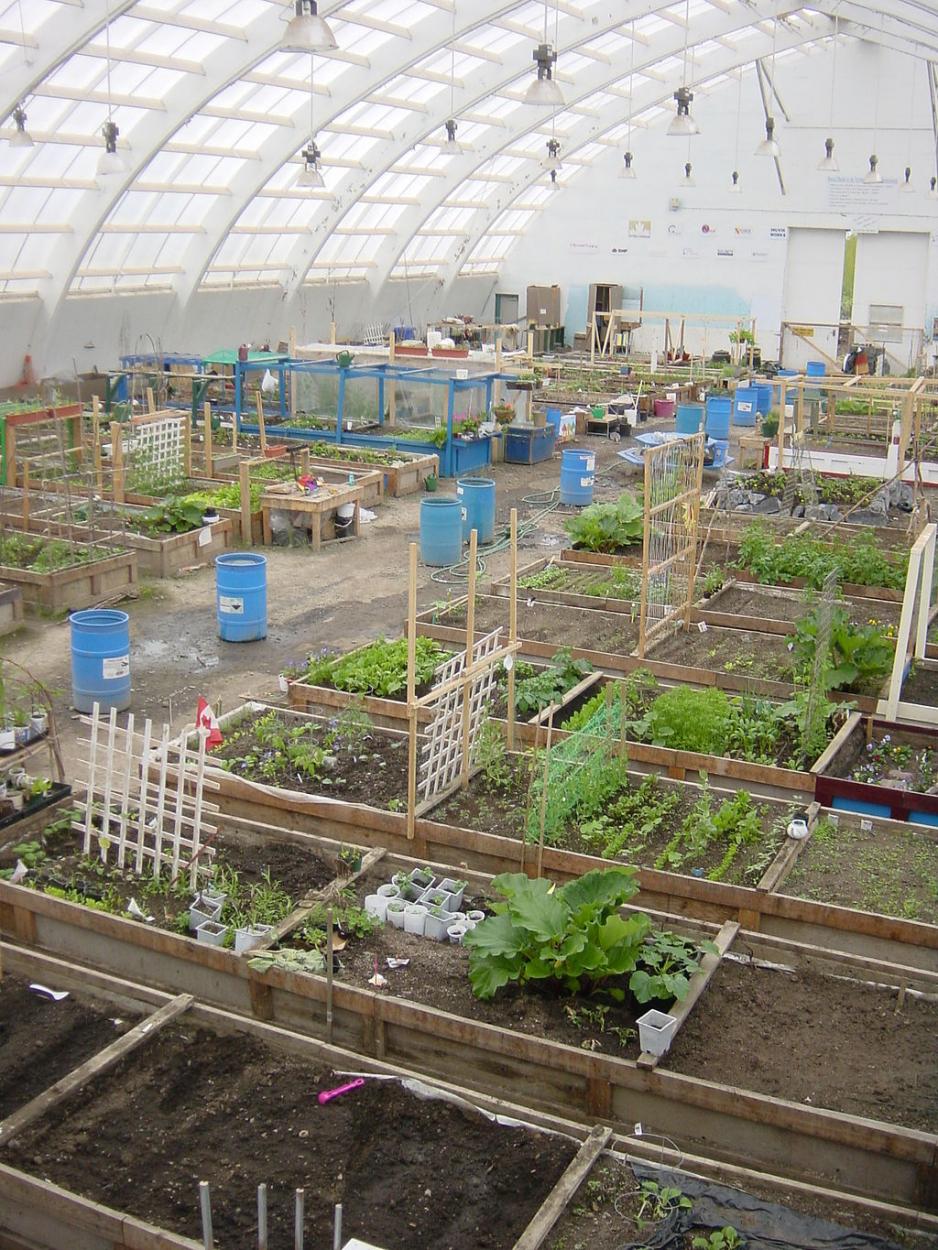Canada has released its first ever National Food Policy and it has specific impacts for the Canadian North

Programs such as the Harvester Support Program are looking to ensure communities have more access to country/traditional foods such as seal and fish. Credit: Ville Miettinen
Earlier this week the Canadian Federal Government released their long awaited Food Policy for Canada entitled, “Everyone at the Table!”. To ensure the success of this policy, the government invested $134 million dollars through the last federal budget,
The policy, which includes a variety of key objects is based on one unifying vision that: All people in Canada are able to access a sufficient amount of safe, nutritious and culturally diverse food. Canada's food system is resilient and innovative, sustains our environment, and supports our economy.
The Minister of Agriculture and Agri-Food Canada, Marie-Claude Bibeau commented, “The Food Policy for Canada is our roadmap for a healthier and more sustainable food system for our country. The investments and initiatives in the food policy will contribute to economic growth, better nutrition and food security for all Canadians.”
Why is this Important?
Canada’s North is one of the most food insecure regions in the country, with Nunavut having the highest level of food insecurity in the entire country. According to a report by The Council of Canadian Academies released in 2014, Nunavut has the highest food insecurity rate of any Indigenous population in a developed country. This means, for example, that 7 out of 10 Inuit preschool children are food insecure, with 25% of them being severely food insecure.
Country food is fundamentally important in communities where bringing food from the South is expensive and heavily dependent on weather conditions. The federal government has supported a program called Nutrition North for several years, which helps subsidize the cost of food for northerners. The controversial program has long suffered an image problem. A report released in May of this year by Andrée-Anne Fafard St-Germain of the Department of Nutritional Sciences at the University of Toronto, showed that the rate of food insecurity increased by 13.2 percentage points in Nunavut since the federal government had fully implemented their subsidy program in 2014.
Capitalizing on community-led programming and food available locally could help alleviate some of these challenges.
What Does This Mean for the North?
The Food Policy for Canada is focusing on four short-term action plans, one of which is: supporting food security in Northern and Indigenous Communities. To achieve this goal, the government has created several initiatives. This includes $15 million, over 5 years, for a Northern Isolated Community Initiatives Fund, which is looking to “support community-led projects like greenhouses, community freezers, and skills training to strengthen Indigenous food systems.” The Canadian Northern Economic Development Agency (CanNor), which will lead this initiative, provided the following comment to HNN, “The objective of this initiative is to find innovative and practical solutions to increase food security across the North together with other federal and northern partners.”

A Greenhouse North of the Arctic Circle, programs such as this could receive funding from the newly announced Northern Isolated Community Initiatives Fund which is looking to support community-led projects. Credit:James Heilman, MD
In Budget 2019, the federal government also announced a Harvesters Support Grant, which will “help lower the costs associated with traditional hunting and harvesting activities.”
Wade Thorhaug, the executive director of the Qajuqturvik Food Centre in Iqaluit, Nunavut spoke to the HNN commenting specifically on the need for country food and his organization’s work towards including it, “Our organization has been approaching the possibility of bringing on hunters on staff, not to commodify what they produce, but provide them a salary so they have the ability to hunt when the timing is right. There has been a pilot that has been done on this, which has been successful. The amount of food produced has been more than for the cost of the salary, the benefits were clear...If there is any support that can come from the federal government for this, that would be great.”
In a recent article by CBC, Natan Obed, the head of the national Inuit organization (Inuit Tapiriit Kanatami (ITK)) commented on the importance of providing support for country food, "Different regions have had different programs over time in relation to harvester support, and this grant is a continuation of the advocacy and the push from Inuit to subsidize and to allow for food security to flow through funds allocated toward harvesting activities."
Mr. Thorhaug, said about the release of the recent National Food Policy that, “There is no one simple fix of food insecurity in the north, but it [Northern Isolated Community Initiatives Fund and the Harvesters Support Grant] would contribute to helping alleviate it.”
Mr. Thorhaug commented that as Canadians, “We have become really detached from our food systems.”
Advisory Council
Finally, as part of the Food Policy for Canada the federal government is planning on creating a Canadian Food Policy Advisory Council. The Council is designed to, “bring stakeholders and experts together to better understand diverse perspectives, work toward a common understanding of food issues, and facilitate collaborative action.” The council is designed to include a variety of people from across the country including Indigenous organizations, academia, non-profit organizations and more.
